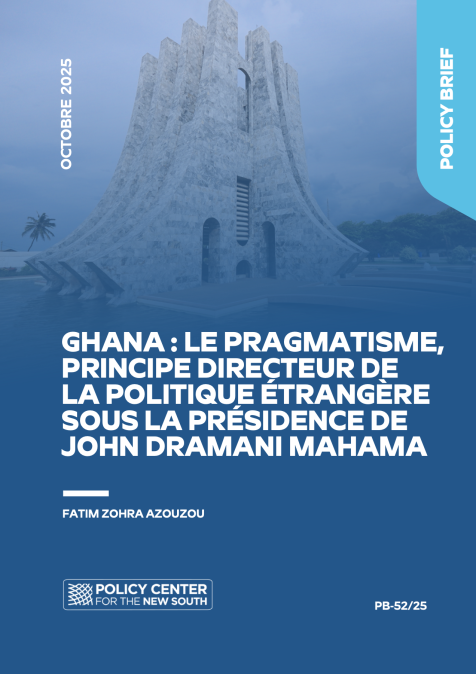Les Mardis du PCNS 30/03/2021 : العلاقات المغربية الأمريكية تحت إدارة الرئيس بايدن
يخصص مركز السياسات من أجل الجنوب الجديد حلقته الاسبوعية لحديث الثلاثاء لمناقشة العلاقات المغربية الأمريكية تحت إدارة الرئيس بايدن، رفقة تاج الدين الحسيني، محلل سياسي وأستاذ القانون الدولي بجامعة محمد الخامس شهدت العلاقات المغربية الأمريكية في السنوات الأخيرة تطورا مهما، سواء من خلال زيارات مسؤولين رفيعي المستوى من الولايات المتحدة إلى المملكة المغربية، أو التوقيع على العديد من الاتفاقيات، وتطوير التجارة، والتنسيق المشترك. قوة هذه العلاقة تكمن في أن المغرب قد يكون الدولة الوحيدة في منطقتنا التي تمتلك آليات غير مسبوقة في علاقتها مع الولايات المتحدة بحكم إعلان المغرب كشريك استراتيجي خارج حلف شمال الأطلسي، وبرامج للتعاون، وكذا العديد من الاتفاقيات التجارية والثقافية. قيمة مضافة كبيرة كذلك، تلك التي يجنيها المغرب من علاقته مع الولايات المتحدة الامريكية، تتجلى أساسا في تأهيل النسيج الاقتصادي، وتنويعه وتقويته، والرفع من طاقاته الإنتاجية؛ مما قد ينتج عنه امتلاك المغرب لمقومات ومزايا تنافسية، تمكنه أولا من الاستجابة لطلبيات السوق الأمريكية الواسعة، ثم بعد ذلك، ولوج الأسواق الخارجية، وخاصة الإفريقية؛ وبالتالي تحقيق ربح اقتصادي يتيح له تعزيز موقعه في علاقاته السياسية والدبلوماسية، الإقليمية والدولية. ماهي العوامل التاريخية والاستراتيجية المؤطرة للعلاقات المغربية الأمريكية؟ أين تتجلى مظاهر وأشكال علاقات التعاون بين الطرفين؟ وما هي آفاق العلاقات المغربية الامريكية في ظل الرئاسة الجديدة بالولايات المتحدة؟ ثم ما هي السياسة الخارجية للولايات المتحدة في الساحة الدولية، وعلى رأسها العودة إلى الساحة الأوروبية، وما إذا كانت هذه الإدارة ستستكمل برنامج أوباما وكلينتون في القارة الأفريقية 30 دقيقة: العلاقات المغربية الأمريكية تحت إدارة الرئيس بايدن المسيّرة: إيمان لهريش، مسؤولة عن البرامج بمركز السياسات من أجل الجنوب الجديد المتدخل: تاج الدين الحسيني، محلل سياسي وأستاذ القانون الدولي بجامعة محمد الخامس











